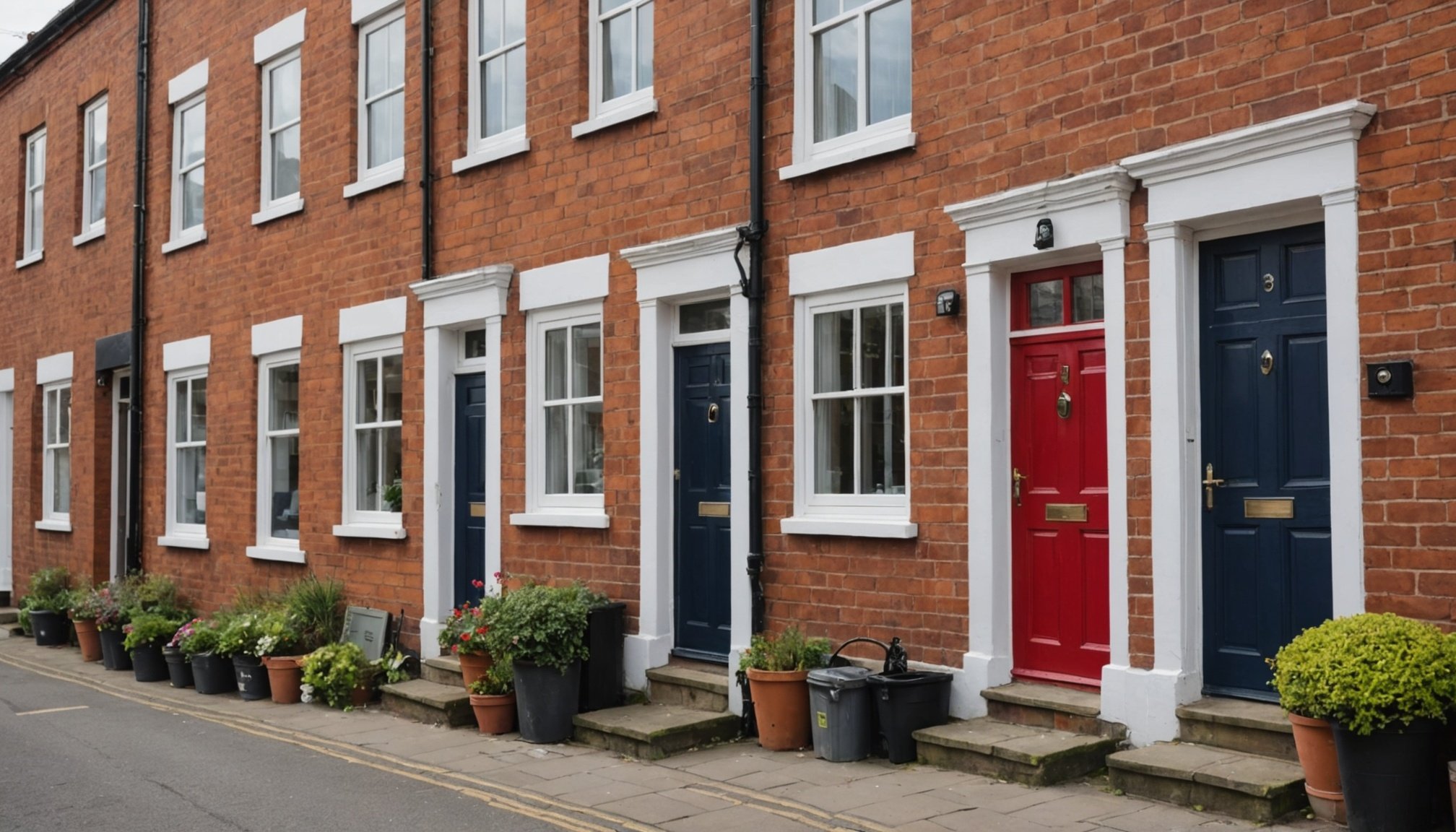A Step-by-Step Guide to Reporting Unlicensed HMOs (Houses in Multiple Occupation) in the UK
Reporting unlicensed HMOs (Houses in Multiple Occupation) is a crucial step in ensuring the safety and well-being of tenants, as well as maintaining the integrity of the housing market in the UK. Here’s a comprehensive guide to help you through the process.
Understanding HMOs and Licensing Requirements
Before diving into the reporting process, it’s essential to understand what constitutes an HMO and the licensing requirements.
Topic to read : Exploring 2023”s New Legislation Impacting the Conservation of Historical Sites in the UK
What is an HMO?
An HMO is a property that is occupied by three or more people who are not from the same household, but share common facilities such as the kitchen, bathroom, or living room. This can include shared houses, flats, and even some types of hostels.
Licensing Requirements
Under the Housing Act 2004, certain types of HMOs need to be licensed by the local council. This typically includes HMOs with three or more storeys and five or more occupants. However, some local councils may have additional licensing schemes that cover other types of HMOs as well.
Also to read : Maximizing Your Savings: A Guide for UK Residents to Claim Tax Relief on Remote Work Expenses in 2023
Identifying Unlicensed HMOs
To report an unlicensed HMO, you first need to identify whether the property in question meets the criteria for an HMO and if it should be licensed.
Key Indicators
- Multiple Occupation: The property is occupied by three or more people who are not from the same household.
- Shared Facilities: Tenants share common facilities such as the kitchen, bathroom, or living room.
- Lack of Self-Contained Units: The property does not consist of entirely self-contained flats or houses.
Gathering Evidence
Before reporting, it’s crucial to gather as much evidence as possible to support your claim.
Types of Evidence
- Photographic Evidence: Take photos of the property, including the exterior and interior, to show shared facilities and multiple occupation.
- Tenant Testimonies: Collect statements from tenants confirming the shared living arrangements and any safety concerns.
- Documentation: Obtain any relevant documents such as tenancy agreements, rent receipts, or correspondence with the landlord.
- Safety Concerns: Note any safety issues, such as inadequate fire safety measures, poor maintenance, or overcrowding.
Reporting to the Local Council
Once you have gathered sufficient evidence, you can report the unlicensed HMO to the local council.
Steps to Report
- Contact the Local Council: Reach out to the housing department of your local council. You can usually find the contact information on their official website.
- Submit Your Evidence: Provide all the evidence you have collected, including photos, tenant testimonies, and any relevant documents.
- Fill Out the Necessary Forms: The council may require you to fill out a specific form or provide a written statement detailing your concerns.
- Follow Up: After submitting your report, follow up with the council to ensure they are taking action.
What Happens After Reporting?
After you report an unlicensed HMO, the local council will investigate the matter.
Investigation Process
- Inspection: The council will conduct an inspection of the property to verify the claims and assess the safety standards.
- Risk Assessment: A risk assessment will be carried out to identify any potential hazards and ensure compliance with housing regulations.
- Enforcement Action: If the property is found to be an unlicensed HMO, the council may take enforcement action, which could include issuing a fine or requiring the landlord to apply for a licence.
Consequences for Landlords
Landlords who operate unlicensed HMOs can face significant consequences.
Penalties
- Fines: Landlords can be fined up to £20,000 for operating an unlicensed HMO.
- Prosecution: In severe cases, landlords may face prosecution.
- Loss of Rental Income: The council can issue a Rent Repayment Order, requiring the landlord to repay up to 12 months of rent to the tenants.
Benefits of Reporting
Reporting unlicensed HMOs has several benefits for both tenants and the community.
Improved Safety Standards
- Ensuring that HMOs are licensed helps to maintain safety standards, reducing the risk of fires, accidents, and other hazards.
- Licensed HMOs must meet specific housing standards, including adequate fire safety measures and proper maintenance.
Protection for Tenants
- Tenants in licensed HMOs have better protection under the law, including the right to a safe and healthy living environment.
- Licensed HMOs are more likely to have clear tenancy agreements and better management practices.
Community Impact
- Reporting unlicensed HMOs helps to maintain the integrity of the housing market and ensures that all landlords operate on a level playing field.
- It also contributes to a safer and more stable community, as licensed HMOs are subject to regular inspections and compliance with regulations.
Practical Advice and Tips
Here are some practical tips to keep in mind when reporting an unlicensed HMO:
Stay Anonymous if Needed
- If you are a tenant and fear retaliation from your landlord, you can report the HMO anonymously.
- However, providing your contact information can be helpful for follow-up and ensuring the council can keep you updated on the progress.
Document Everything
- Keep a detailed record of all correspondence with the council and any evidence you gather.
- This can be useful if the case goes to court or if further action is needed.
Seek Support
- If you are unsure about the process or need additional support, consider contacting a local housing advice service or a tenants’ association.
Example Scenario
To illustrate the process, let’s consider an example scenario:
Case Study
Imagine you live in a shared house with four other people, and you suspect that the property is an unlicensed HMO. You notice that the fire alarm is not working, and the kitchen is in poor condition. Here’s what you can do:
- Gather Evidence: Take photos of the property, including the broken fire alarm and the kitchen.
- Talk to Tenants: Collect statements from your housemates confirming the shared living arrangements and the safety concerns.
- Contact the Council: Reach out to the local council’s housing department and submit your evidence along with a written statement.
- Follow Up: After a few weeks, follow up with the council to ensure they are taking action.
Reporting unlicensed HMOs is a vital step in ensuring the safety and well-being of tenants and maintaining the integrity of the housing market. By understanding the licensing requirements, gathering evidence, and following the reporting process, you can help create a safer and more regulated housing environment.
Key Takeaways
- Identify HMOs: Recognize properties that meet the criteria for HMOs and check if they are licensed.
- Gather Evidence: Collect photographic evidence, tenant testimonies, and relevant documents.
- Report to the Council: Submit your evidence and follow up to ensure action is taken.
- Understand Consequences: Landlords operating unlicensed HMOs can face significant penalties.
By taking these steps, you can contribute to a safer and more compliant housing sector in the UK.
Detailed Checklist for Reporting Unlicensed HMOs
Here is a detailed checklist to help you through the process:
Before Reporting
- Verify HMO Status: Ensure the property meets the criteria for an HMO.
- Check Licensing: Determine if the HMO should be licensed under local regulations.
- Gather Evidence: Collect photos, tenant statements, and relevant documents.
Reporting
- Contact Local Council: Reach out to the housing department of your local council.
- Submit Evidence: Provide all gathered evidence and fill out any necessary forms.
- Follow Up: Ensure the council is taking action and follow up if necessary.
After Reporting
- Inspection and Risk Assessment: The council will conduct an inspection and risk assessment.
- Enforcement Action: The council may take enforcement action, including fines or requiring a licence application.
- Protection for Tenants: Ensure tenants are protected under the law and have a safe living environment.
Table: Comparison of Licensed and Unlicensed HMOs
| Aspect | Licensed HMO | Unlicensed HMO |
|---|---|---|
| Safety Standards | Must meet specific safety standards, including fire safety measures and proper maintenance. | May not meet safety standards, posing risks to tenants. |
| Inspections | Regular inspections by the local council to ensure compliance. | No regular inspections, potentially leading to neglect and hazards. |
| Tenant Protection | Tenants have better protection under the law, including the right to a safe and healthy living environment. | Tenants may lack protection, facing potential health and safety risks. |
| Landlord Obligations | Landlords must comply with licensing regulations and maintain the property. | Landlords may not comply with regulations, leading to penalties if discovered. |
| Consequences for Non-Compliance | None if compliant, but penalties for non-compliance. | Fines up to £20,000 and potential prosecution for operating an unlicensed HMO. |
| Community Impact | Contributes to a safer and more stable community. | Can lead to a decline in housing standards and community safety. |
Quotes from Experts
- “Reporting unlicensed HMOs is crucial for ensuring the safety and well-being of tenants. It helps maintain the integrity of the housing market and ensures that all landlords operate on a level playing field.” – Housing Officer, Local Council
- “Tenants in licensed HMOs have better protection under the law and are more likely to live in a safe and healthy environment. It’s our responsibility to report any suspicions of unlicensed HMOs to protect our community.” – Tenant Advocate
By following this guide and taking the necessary steps, you can play a significant role in improving housing standards and ensuring the safety of tenants in HMOs across the UK.











